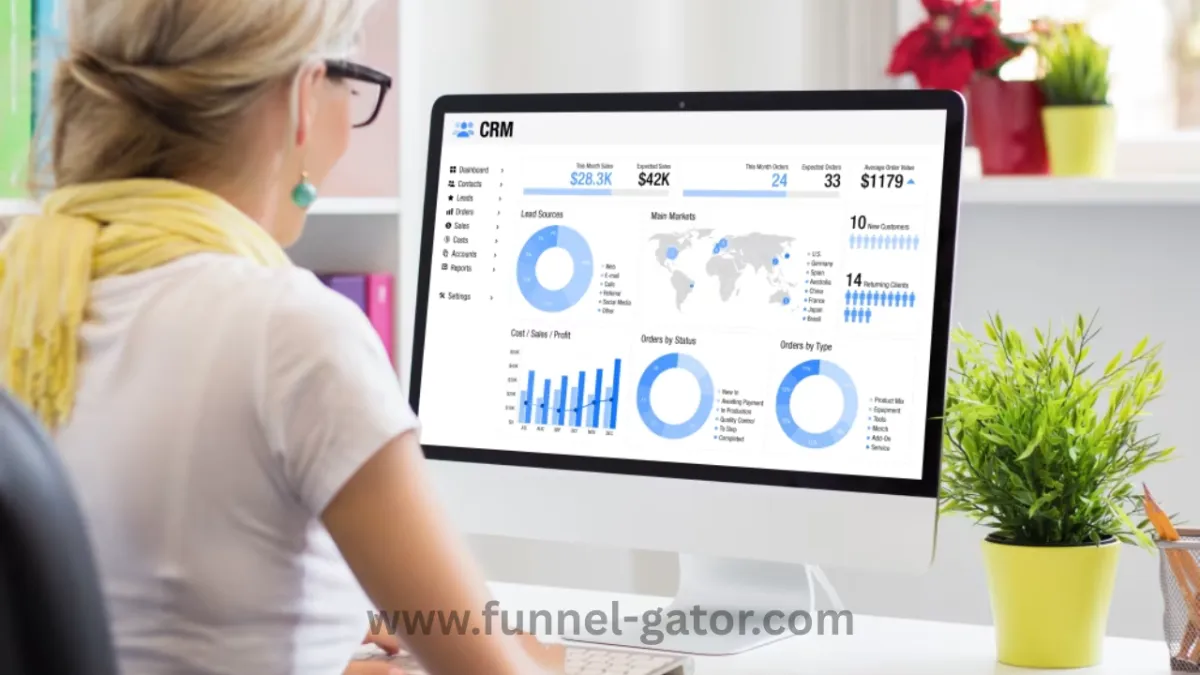
CRM System Meaning: A Simple Guide for Everyone
Have you ever walked into your favorite café and the barista remembered your name and usual order? That little moment makes you feel valued, right? Now imagine a business doing the same — not just for one, but for hundreds or thousands of customers. That’s the magic of a CRM system.
In this article, we’ll break down the meaning of a CRM system, how it works, and why every business — big or small — should be using one today. Whether you're running a shop, a startup, or a service agency, this guide will help you understand how to use CRM to grow your business and keep customers happy.
What Is a CRM System?
CRM stands for Customer Relationship Management. It refers to a technology or software platform that helps businesses manage and improve their interactions with current and potential customers.
Think of it like a digital notebook, but way smarter. It stores your customer data, tracks conversations, reminds you of follow-ups, and gives you insights to build better relationships.
Why Does CRM Matter?
Let’s say you own a small bakery. You’ve got walk-in customers, online orders, and birthday cake bookings. Over time, you start forgetting who ordered what or when to follow up. That’s when you risk losing customers — not because your cakes aren't tasty, but because your communication falls apart.
With a CRM system, you can:
Store contact details
Track customer history
Send timely reminders or offers
Follow up automatically
Understand buying patterns
In short, it helps you stay organized, build trust, and sell smarter.
💡 A Quick Anecdote
Sarah runs a small clothing boutique online. She started using a CRM system after missing out on replying to a few repeat customers during the holiday rush. Within 3 months, her sales increased by 40% — all because she never missed a follow-up again, sent personalized thank-you messages, and offered birthday discounts.
CRM didn’t just organize her business — it transformed her relationships.
Types of CRM Systems
There are mainly three types of CRM systems, depending on what your business needs:
Operational CRM – Focuses on automating sales, marketing, and customer support.
Analytical CRM – Helps analyze customer data and make better business decisions.
Collaborative CRM – Ensures different departments (like sales and support) work together using shared customer data.
How Does a CRM System Work? (Step-by-Step Guide)
Here’s a simple breakdown of how a CRM system works in real life:
1. Data Collection
Your CRM collects data from multiple sources:
Emails
Phone calls
Website forms
Social media
Chatbots
Every time a customer interacts with your business, the CRM stores the details.
2. Data Organization
The system then organizes everything into neat customer profiles:
Name
Contact info
Purchase history
Notes
Preferences
This means you can see everything about a customer in one place.
3. Follow-ups and Automation
Want to send a welcome email or remind someone of an abandoned cart? Your CRM can do that automatically.
4. Reports and Insights
Your CRM generates performance reports to show:
Who your best customers are
What products are doing well
Which campaigns are bringing results
🔗 How CRM Works – HubSpot Guide
Who Should Use a CRM System?
Honestly? Every business that deals with people.
Freelancers tracking clients and payments
Startups chasing leads and funding
Retail stores running loyalty programs
Real estate agents managing property buyers
Service providers booking appointments
Even if you’re just getting started, having a CRM system means you're preparing your business to scale.
Best CRM Features to Look For
When choosing a CRM, here are must-have features:
Contact Management
Sales Pipeline Tracking
Email Integration
Task & Reminder System
Reporting Tools
Mobile Access
Third-Party App Integrations
🔗 Top CRM Features to Consider
✅ Benefits of Using a CRM System
Here’s what you gain with a CRM system:

How to Choose the Right CRM System
With so many options, here’s how to pick the right CRM for you:
Know Your Needs – Start simple if you're a small business.
Try Free Versions – Tools like HubSpot CRM or Zoho CRM offer free plans.
Check for Integration – Make sure it works with your email, website, or sales tools.
Consider the Learning Curve – A clean, easy-to-use dashboard is better than a complex one.
Frequently Asked Questions (FAQs)
❓ What does CRM stand for?
CRM stands for Customer Relationship Management — a software that helps businesses manage their interactions with customers.
❓ Is a CRM system expensive?
Not necessarily. There are many free CRM systems like HubSpot, especially suitable for small businesses. Paid versions start as low as $10/month.
❓ Do I need technical skills to use a CRM?
Not at all. Most CRM platforms today are user-friendly and come with tutorials.
❓ Can CRM increase my sales?
Yes! By tracking leads, following up automatically, and understanding customer behavior, CRM systems often lead to higher conversions.
❓ Which is the best CRM system?
It depends on your needs, but popular ones include:
🎯 Final Thoughts
A CRM system is more than just software. It’s your digital assistant, your relationship builder, and your sales booster — all in one. It helps you stay on top of things, keeps your customers happy, and gives you the power to grow confidently.
So, if you're still relying on sticky notes or scattered spreadsheets, it’s time to switch. A good CRM system will not only save you time but also boost your revenue and build loyal customer relationships.


